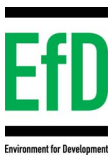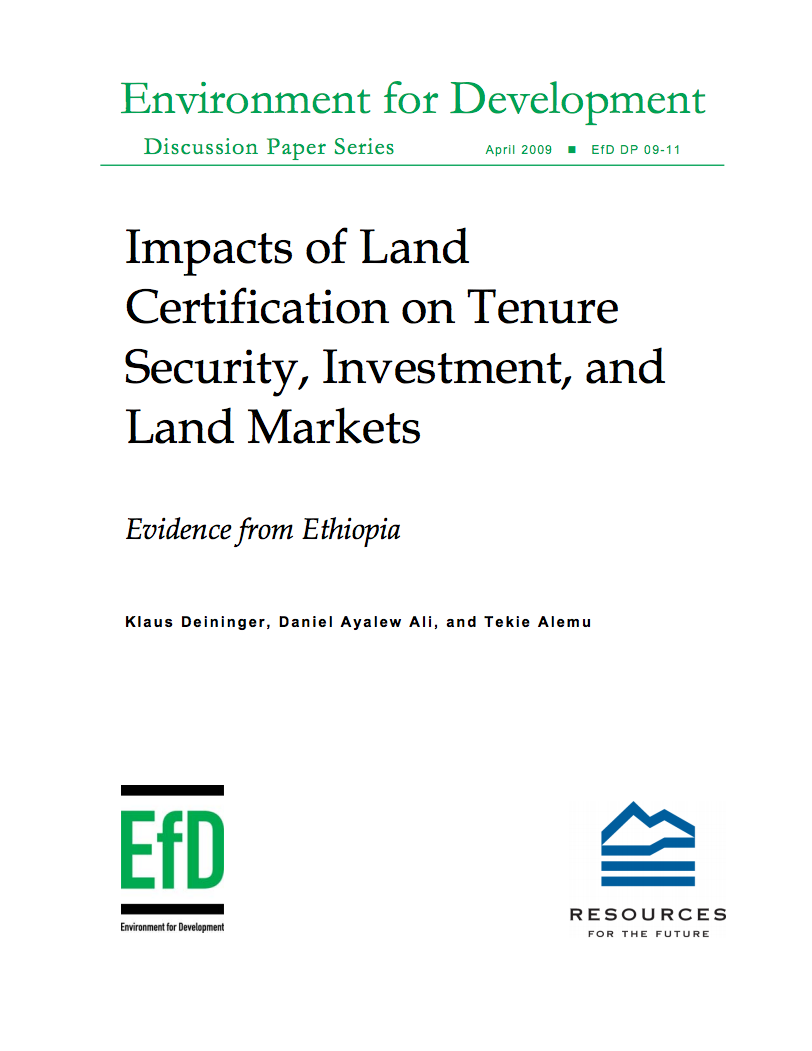Location
The Environment for Development (EfD) Initiative is a capacity building program in environmental economics focusing on research, policy interaction, and academic programs. The overall objective of EfD is to support poverty alleviation and sustainable development by building environmental economics capacity in policy making processes.
EfD was established in 2007 by the Environmental Economics Unit, University of Gothenburg, Sweden. The EfD network now has centers hosted by universities or academic institutions in Central America, Chile, China, Ethiopia, Kenya, South Africa, Sweden, Tanzania , USA, India, Vietnam and Colombia. The program also includes a full PhD program in Global Change and Climate Economics given at the University of Gothenburg, and four Specialization courses in Environmental and Climate Economics, held every other year.
The EfD Secretariat, the administrative hub and the main support function of the EfD Initiative, is hosted by the center in Sweden. The secretariat serves the EfD centers with research management, central communication functions, core support management and administration, and acts as an incubator for policy interaction issues to share experiences between the EfD centers and other relevant actors.
Members:
Resources
Displaying 1 - 1 of 1Impacts of Land Certification on Tenure Security, Investment, and Land Markets
While early attempts at land titling in Africa were often unsuccessful, the need to secure land rights has kindled renewed interest, in view of increased demand for land, a range of individual and communal rights available under new laws, and reduced costs from combining information technology with participatory methods. We used a difference-in-difference approach to assess the effects of a low-cost land registration program in Ethiopia, which covered some 20 million plots over five years, on investment.


